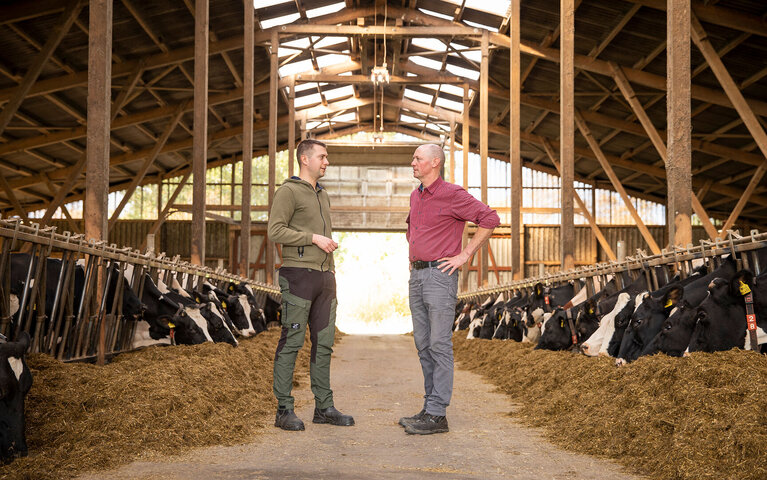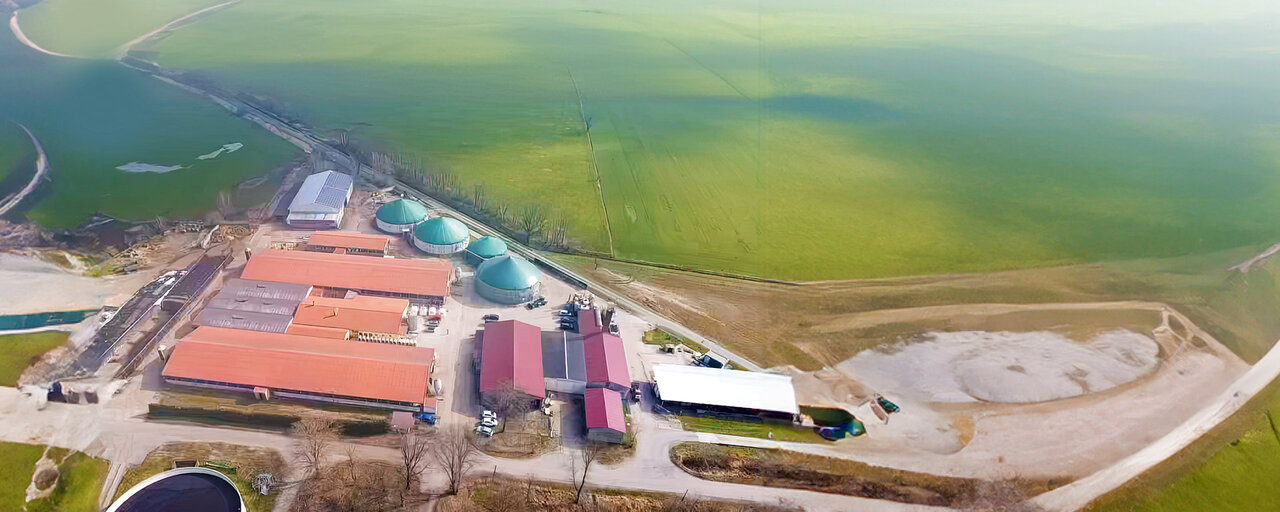![[Translate to English:]](https://dmk.de/fileadmin/_processed_/d/2/csm_K%C3%BChe_auf_der_Weide_642abbdf70.jpg)
With our Milkmaster programme, we support appropriate farming systems and promote the welfare of our cattle and farmers.
The cows’ health is the foundation of responsible milk production. Housing systems that promote animal welfare are a central concern for us and our dairy farmers – because only healthy, happy cows give a plentiful yield of high-quality milk. Our Milkmaster Programme defines aspects of responsible milk production and gives recommendations on a wide range of cattle housing topics such as freedom of movement, requirements on the lying area and on specific areas for calving or the isolation of sick cows as well as resting areas, social contact and shelter.
Loose housing plays an important role at DMK. With this method, cattle have the freedom to move around, which is good for their health and physical condition. Feeding can be better regulated with indoor systems, which has a positive impact on the climate footprint because methane emissions can be reduced by efficient feeding. Around 96% of the volume of milk processed by DMK comes from farms where loose housing is the norm.
In the Milkmaster Programme, the DMK Group recommends a combination of loose housing systems with access to pasture on at least 120 days a year for dairy cows and other cattle where a farm's conditions allow for it. Since not every farm has sufficient meadowland nearby, pasture grazing cannot be used universally in Germany. We support ours by recognising pasture grazing as a bonus criterion in the Milkmaster system. At present, around 60% of DMK’s farmers allow their cattle temporary access to pasture.

Tie-stall housing is becoming obsolete in our cooperative. Less than 4% of the milk volume comes from cows in seasonal tie-stall housing, which means that the cattle also have access to pasture. Fewer than 1.3% of our farmers practice year-round tie-stall housing with no access to pasture, which corresponds to a milk volume of around 0.23%. From 1 January 2026 onwards, DMK will no longer process milk from year-round tie-stall housing. We are in dialogue with the farmers who already facilitate access to pasture in addition to tie-stall housing about how the tie-stall housing could be superseded to a greater degree.
Now and in the future, the following holds true: of course modern technology is also being integrated into cowsheds. Fitness trackers, robotic milking machines and sensors enable more transparency, individual animal care and targeted herd management. Data on the cows’ behaviour and metabolism improve the connection between humans and animals and may enable the cattle to have a better life. Our farmers know that, and they therefore constantly optimise processes on their dairy farms. Who benefits? The cows, the dairy farms and ultimately the consumers as well.
![[Translate to English:] [Translate to English:]](https://dmk.de/fileadmin/_processed_/e/7/csm_DMK_28A5636_45c62fc95c.jpg)

